Retro Replay Review
Gameplay
The core of Blagger’s gameplay revolves around guiding Rodger the Dodger through a series of treacherous platform-styled levels, each filled with hazards that require precise timing and nimble jumping. Players must collect a set of keys scattered throughout the stage, then navigate to a safe in order to advance. There are no weapons or power-ups to rely on—success depends entirely on mastering Rodger’s movement, momentum, and jump arcs.
(HEY YOU!! We hope you enjoy! We try not to run ads. So basically, this is a very expensive hobby running this site. Please consider joining us for updates, forums, and more. Network w/ us to make some cash or friends while retro gaming, and you can win some free retro games for posting. Okay, carry on 👍)
With 30 unique levels, Blagger offers a steadily increasing difficulty curve. Early stages introduce simple obstacles like cacti and moving cars, while later levels throw in aliens, mad hatters, giant mouths, and the so-called “chinamen,” each presenting their own timing puzzles. The fixed time limit adds a layer of urgency, forcing players to balance cautious navigation with swift progression.
Failing to clear a stage comes at the cost of one of Rodger’s limited lives, which are lost not only by touching hazards but also by falling from too great a height or running out of time. This strict penalty system heightens the tension, encouraging careful memorization of each level’s layout but also rewarding daring maneuvers once patterns are learned. The lack of checkpoints keeps each run challenging, fostering a satisfying “just one more try” mentality.
Graphics
Originally crafted in an era of 8-bit hardware, Blagger’s visuals embrace a charmingly minimalist pixel art style. Environments are defined by bold color blocks and simple animations—Rodger’s running and jumping motions are succinct but clear, conveying character through a few well-placed frames.
Each hazard and level element stands out sharply against the backdrop, ensuring that players can quickly identify safe platforms versus dangerous obstacles. The recurring motifs—cacti in desert stages, futuristic cars in city strips, and the strange alien figures—are easily distinguishable, minimizing confusion even when the action ramps up.
While modern gamers accustomed to high-definition textures may find Blagger’s graphics dated, the retro aesthetic has its own nostalgic appeal. The limited palette and sprite-based environments capture the spirit of early platformers, and the occasional flicker or color clash adds to the period charm rather than detracting from the experience.
Story
Blagger’s narrative is refreshingly straightforward: you play as Rodger the Dodger, an agile burglar on a quest to snatch keys and crack open safes across increasingly tricky locales. There’s no elaborate backstory, just a succinct premise that puts players immediately into the action.
Rather than relying on cutscenes or dialogue, Blagger conveys character through the hazards themselves. Each level’s theme—from the desert terrain with its prickly cacti to bizarre scenes populated by mad hatters and alien creatures—suggests a whimsical world that Rodger must infiltrate. This approach leaves much to the player’s imagination, crafting a loose narrative around platforming challenges.
For those looking for deep storytelling, the plot may feel perfunctory. However, the simplicity works in the game’s favor, keeping the focus on skillful movement and puzzle memorization. In Blagger, the story exists solely to serve the gameplay, and in that sense, it succeeds by providing just enough context to keep each new level feeling fresh and purpose-driven.
Overall Experience
Blagger stands out as a pure test of platforming prowess. Its blend of time-pressured puzzles and precision jumping provides a crisp, demanding experience that rewards practice and perseverance. Each victory—clearing a level under the clock and without losing all lives—carries a genuine sense of accomplishment.
While some modern conveniences like checkpoints, power-ups, or varied control schemes are absent, this austerity contributes to Blagger’s old-school charm. Players seeking nostalgia will appreciate the game’s faithful adherence to classic design principles, while speedrunners may find plenty of room to optimize routes and shave seconds off their best times.
In sum, Blagger may not appeal to every gamer’s taste—its punishing difficulty and retro presentation aren’t for those seeking a casual platformer—but for aficionados of precision-based challenges and pixel art aesthetics, it delivers an engaging, memorable ride through 30 inventive stages. If you’re prepared for a stopwatch-driven test of skill, Blagger is well worth your time.
 Retro Replay Retro Replay gaming reviews, news, emulation, geek stuff and more!
Retro Replay Retro Replay gaming reviews, news, emulation, geek stuff and more!
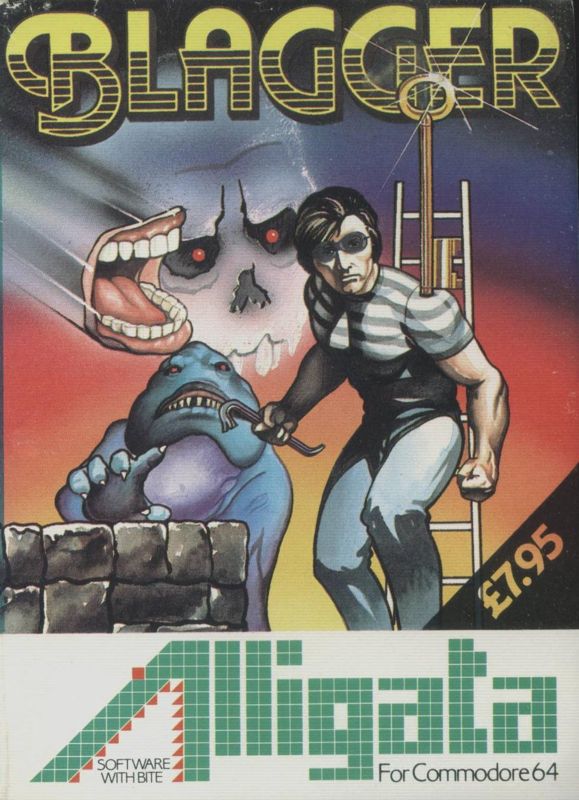
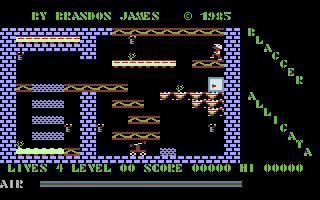
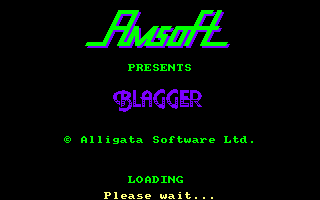
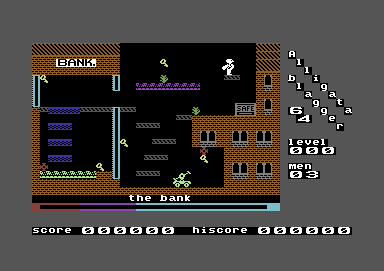
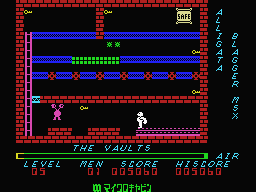
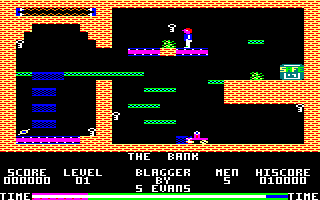



Reviews
There are no reviews yet.